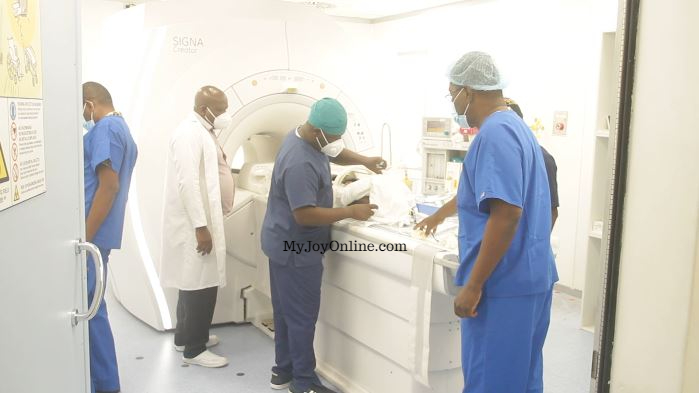World Health Organization (WHO) Representative to Ghana, Dr. Francis Chisaka Kasolo has called on WHO member states to invest substantially in healthcare workers to stop them from seeking greener pastures elsewhere.
Undoubtedly, he said Africa’s health workforce challenges, including shortages, unemployment, excessive outmigration, mal-distribution, unsatisfactory working conditions and inadequate workplace safety and protection, required a paradigm shift in investing better and smarter in the health workforce.
This would enable member states to attain universal health coverage and health security.
Dr. Kasolo made the call on Tuesday at a three-day Regional Policy Dialogue in Accra on Investment and Protection of Health and Care Workers in Africa, organised by WHO towards a Health Workforce Investment Charter.
Despite the increase in numbers of the healthcare workforce, he said there were also challenges with adequacy, equity, and quality of service, considering that Africa still had the lowest density of health workforce per 10,000 population with a projected 5.3 million health worker shortage by 2030.
The dialogue brought together WHO member States, sub-regional economic committees (AU, ECOWAS, West African Economic and Monetary Union, Southern African Development community, and Central African Economic and Monetary Community) and partners to share experiences on the health workforce investment and protection strategies implemented since 2018.
The platform was also used to explore innovative policy and investment options, collaborative partnerships and opportunities to support all countries to invest in the education, jobs, safeguarding and protection of their health workforce while working towards the launch of the new Working for Health 2022–2030 Action Plan and its mandate.
Dr. James Avoka Asamani, a Health Economist at WHO Regional Office for Africa said research in Ghana showed a 43 percent increase in the resignation rate of health workers in 2022 compared to 2018.
In Kenya, nearly 2000 nurses sought certificates of good standing to potentially migrate in the first five months of 2022, while more than 1,200 nurses resigned and potentially emigrated from Zimbabwe in 2021, a threefold increase compared to 2019, he said.
He said Africa had only three percent of the global workforce but 25 percent of disease burden and 70 percent of health emergencies.
Dr. Asamani said current output by the continent would reduce its health workforce shortage by only four percent in 2030, leaving a gap of 5.3 million by 2030.
He said an estimated 30 percent of trained health workers remained unemployed or underemployed in precarious jobs.
COVID-19, he said, had slowed down budgetary space in Africa and created great resignation and pandemic-driven demand in high-income countries, adding that the combined effect of those exacerbated migration of the African health workforce.
Deputy Minister of Health, Alhaji Mahama Asei Seini said in the commitment to achieving Universal Health Coverage by 2030, his Ministry recognised the need for highly skilled and capable health workforces across the country and had continuously developed and reviewed policies and strategies to guide the achievement of those goals.
The latest attempt, he said, was the comprehensive national policy and strategy for human resources for health service delivery, which outlined the different components needed to improve the production, training and retention of health workers to attain Sustainable Development Goals.
The Deputy Minister said the regional dialogue was timely as the discussions would feed into the technical workshop on the labour market analysis, scheduled for next week.
There could be no better time to invest in the health workforce because it would protect vulnerable populations from the shock of the current crisis and improve health access, Alhaji Seini said.
“We are extremely optimistic about the pragmatic solutions that would emanate from this dialogue as countries share experiences on what works, what doesn’t and we can all take home as lessons,” he said.
Latest Stories
-
Telecel Group strengthens commitment to Ghana’s socio-economic development with major CSR initiative in digital skills training
12 minutes -
Telecel Ghana honours Epixode with Music for Good Award at 26th TGMAs
18 minutes -
Eddie Nketiah scores twice in Crystal Palace win over Wolves
27 minutes -
The Pelican Hotel in Cantonments unveils a new era of hospitality
31 minutes -
Mpohor and Adum Banso in the Western Region welcome 20 Blue Water Guards
39 minutes -
Softcare celebrates Mother’s Day with donation to Korle-Bu Teaching Hospital
49 minutes -
Monetary Policy Committee of BoG begins meeting today; cedi performance high on the agenda
57 minutes -
itel debuts CITY series with CITY 100 new model: A stylish, durable & DeepSeek AI-powered smartphone for Gen Z
1 hour -
Star Assurance, Hope for Little Lives deliver transformative outreach
1 hour -
Tullow Ghana restarts drilling in Jubilee Field, signals renewed investment in energy sector
1 hour -
Fidelity Bank Toastmasters Clubs shine at District 94 Conference in Côte d’Ivoire
1 hour -
Empress Gifty sues Agradaa for defamation; demands GH₵20 million in damages
2 hours -
Elikplim Akurugu sworn in as member of NLA Governing Board
2 hours -
Government reclaims Asenayo Forest Reserve from illegal miners
3 hours -
NIB boss honoured as Peace Ambassador for commitment to unity and justice
3 hours

